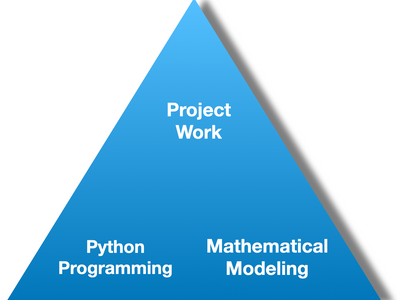The course aims to train abilities that are important for working in project form. The course provides basic knowledge of mathematical modeling and its role and use for biotechnology applications. The course provides basic knowledge in structured programming for the implementation of mathematical models. The course projects are interdisciplinary, targeting areas that are close to biotechnology.
The course includes:
- A discussion of the role of modeling in biotechnology
- The application of project management tools
- The design and implementation of a project in biotechnology with focus on mathematical modeling.
- Literature search and reference management
- Self-reflection based on group dynamics and processes
- Report writing
- Oral presentation
